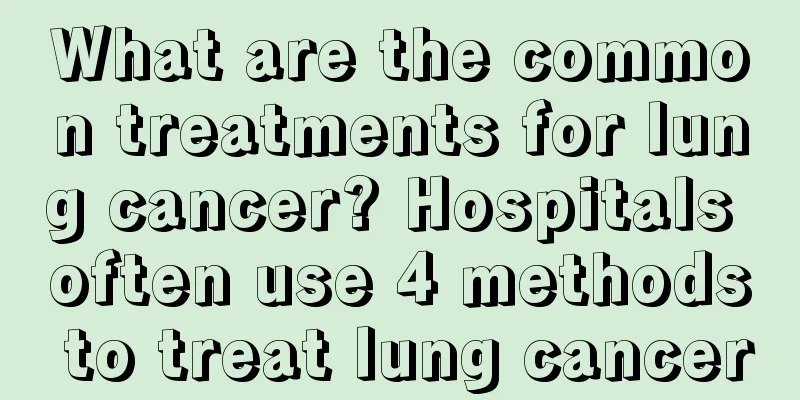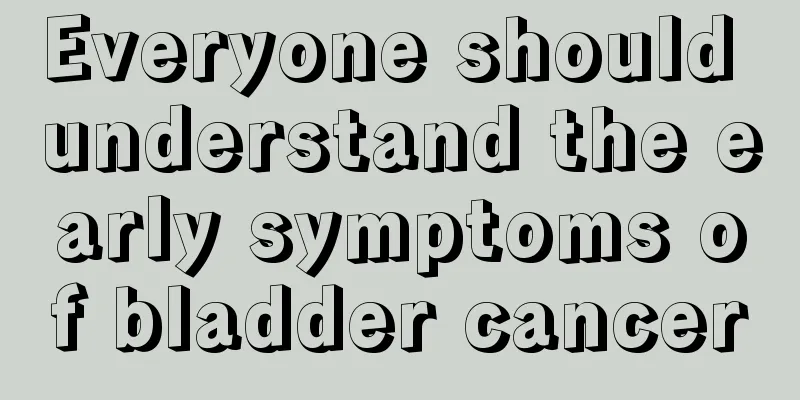I feel panicked every time I wake up

|
Many people have the habit of taking a nap at noon every day. They will feel more energetic after waking up from the nap, which is conducive to improving work efficiency in the afternoon. But sometimes I would suddenly wake up in the middle of the night and my heart would beat very fast. This situation can be serious or minor, and you need to consider whether it is because you often stay up late and have an irregular work and rest schedule. It could also be heart disease. What is the reason for feeling anxious when waking up? 1. Common causes 1. Increased heart rate 1. Physiologically, normal people may experience palpitations after strenuous physical activity or mental excitement, drinking alcohol, or taking drugs such as ephedrine, caffeine, and adrenaline, which may also increase the heart rate. 2. Pathological causes include ventricular hypertrophy (such as rheumatic, hypertensive, coronary artery sclerosis, etc.), anemia, high fever, hyperthyroidism, and other diseases that cause increased cardiac output, all of which can cause palpitations. (ii) Arrhythmias such as tachycardia or bradycardia (such as high-degree atrioventricular block, etc.) and irregular heart rhythm (such as premature beats, atrial fibrillation, etc.) can cause patients to experience palpitations. (III) Cardiac neurosis is a clinical syndrome caused by autonomic nervous system dysfunction, which leads to cardiovascular dysfunction. In addition to palpitations, patients also have stabbing or dull pain in the left chest, difficulty breathing, and are often accompanied by other neurotic symptoms. 2. Key points of medical consultation When asking questions, pay attention to the time when palpitations occur, their relationship with labor, and accompanying symptoms. (1) Palpitations accompanied by chest pain can be seen in coronary artery ischemia, myocarditis, cardiac neurosis, etc. (ii) Palpitations accompanied by fever can be seen in rheumatic fever, hyperthyroidism, pericarditis, myocarditis, infective endocarditis and other febrile diseases. (III) Palpitations accompanied by syncope and convulsions may be seen in cardiogenic cerebral hypoxia syndrome caused by high-degree atrioventricular block, ventricular fibrillation or paroxysmal ventricular tachycardia and ventricular fibrillation. (IV) Palpitations accompanied by dyspnea can be seen in acute myocardial infarction, heart failure, severe anemia, etc. |
<<: What's wrong with feeling flustered and weak
>>: How to relieve the panic after taking diet pills
Recommend
What causes headache, nausea and vomiting?
We often encounter symptoms of physical discomfor...
Skin cancer can be detected from papules
Skin cancer can be detected from papules. The cha...
What items are checked in the premarital check-up?
Premarital examination is a very important matter...
How to warm up before running?
Among various sports, running is the simplest one...
My waist hurts after bending for a while
If you experience back pain after bending over fo...
What shampoo to use for oily hair
There are many types of hair quality. Some people...
How does bone cancer spread?
When it comes to bone cancer, everyone is very af...
Is tofu a cold food?
Tofu is a cold food, so patients with weak gastro...
What are the early symptoms of bladder cancer? What is the cure rate of bladder cancer?
Bladder cancer refers to a variety of malignant t...
What are the late symptoms of laryngeal cancer?
In recent years, laryngeal cancer has become a ma...
The important thing for diagnosing lumbar disc herniation is
Most people will experience lower back pain, espe...
Does aloe vera gel have the effect of removing spots?
Aloe vera has the effect of naturally removing fr...
How to open the back of a shrimp and remove the shrimp thread
The shrimp head should not be eaten, and the blac...
How to choose diapers
Diapers are an important item for children. We ne...
The correct posture for breastfeeding while lying down
There are many things that mothers need to pay at...









